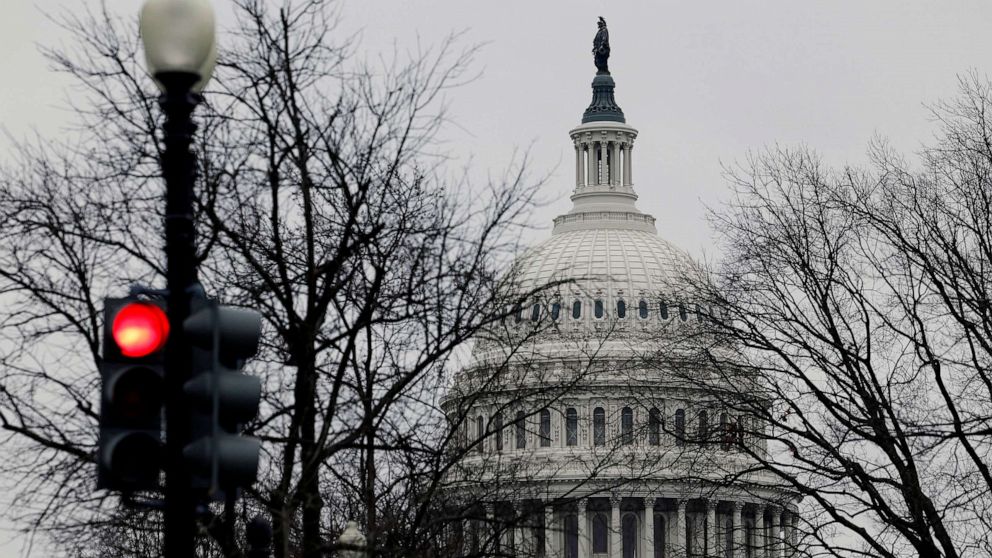WASHINGTON — House Speaker Kevin McCarthy’s budget proposal, which includes changes to various entitlement programs like food stamps and Section 8, faces a tough road to passage.
Millions of Americans who rely on federal payments to make ends meet, could be negatively impacted if the government is unable to pay its bills come June 1.
If allowed to happen, economists agree the first debt default in U.S. history would be an economic catastrophe and could trigger a global financial crisis.

Allowing the U.S. to default on its debts would induce “a self-inflicted recession,” Gregory Daco, chief economist at EY-Parthenon, wrote in a note to clients this week.
This week Treasury Secretary Janet Yellen put Congress on notice. In a letter to House Speaker Kevin McCarthy, R-Calif., Yellen warned the U.S. could be unable to “continue to satisfy all of the government’s obligations” by June 1 if Congress does not raise or suspend the debt limit before that time.
Yellen wrote that a debt default would “cause severe hardship to American families.”
The federal government would have to make hard decisions, like who gets paid and when, and the consequences would be far-reaching.
Payments to 67 million Social Security beneficiaries could be halted.

However, a 1996 law provides an escape clause that allows the Treasury Department to continue paying Social Security benefits, even if there is a delay in raising the debt ceiling. “There is legal authority, and it arguably should be used to make sure benefits are paid,” Steve Robinson, chief economist for the bipartisan Concord Coalition, wrote in a recent paper.
The law allows for the Social Security trust fund to be drawn down to keep those benefits flowing until the debt limit is raised, while prohibiting those funds from being used to pay for any other government programs.
There’s very little Americans can do to prepare for the unprecedented event of a U.S. debt default, “since it’s difficult to know what payment would be made, in full or in part as well as the timing,” Daco wrote.
Analysts say your best defense is to keep your own financial house in order. They say having emergency savings on hand and paying down debt will be more important than ever.
What else could be impacted?
Payments on other U.S. obligations, including for Medicare and Medicaid, SNAP food assistance, veterans’ benefits, housing assistance and school lunch programs would also be at risk, inflicting pain on Americans across the country.
The U.S. credit rating would most likely be downgraded, sending interest rates higher and making it more expensive for businesses and consumers to borrow money.
Analysts say a credit market freeze could hurt the ability of U.S. companies to operate effectively.
Yellen also warned that a debt default would “harm our global leadership position,” as world financial markets lose faith in the U.S. and its ability to pay its bills. The government would not have the money to pay back buyers of its bonds and other securities, causing the U.S. dollar to weaken and the stock market to tumble, hurting Americans’ retirement savings and other investments.
Debt limit could hurt jobs, unemployment
The damage would largely depend on how long the impasse lasts.
If the default lasts for about a week, close to one million jobs would be lost, the unemployment rate would jump to about five percent and the economy would contract by nearly half a percent, according to the financial services company Moody’s.
But if the impasse drags on for six weeks, Moody’s estimates more than seven million jobs would be lost, the unemployment rate would soar above eight percent and the economy would decline by more than four percent.
How did we get here?
The Biden Administration and House Republicans have been deadlocked in debt negotiations for months.
House Republicans passed their own bill that slashes government spending in exchange for raising the debt ceiling, but President Joe Biden has said he will not negotiate with them until spending talks are separated from the debt limit.
A recent ABC News/Washington Post poll finds broad worry about the consequences of default among Americans.
A vast majority of poll respondents, 82 percent, are very or somewhat worried that a government default would damage the economy. Just 26 percent of Americans adopt McCarthy’s position that Congress should allow the government to pay its debts only if the administration agrees to cut federal spending, while an overwhelming 65 percent agree with Biden’s view that the issues of debt payment and federal spending should be handled separately.



